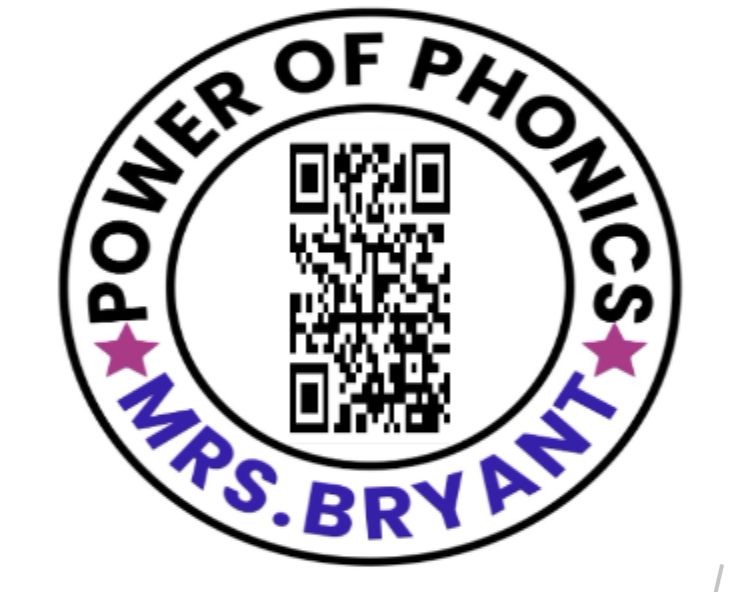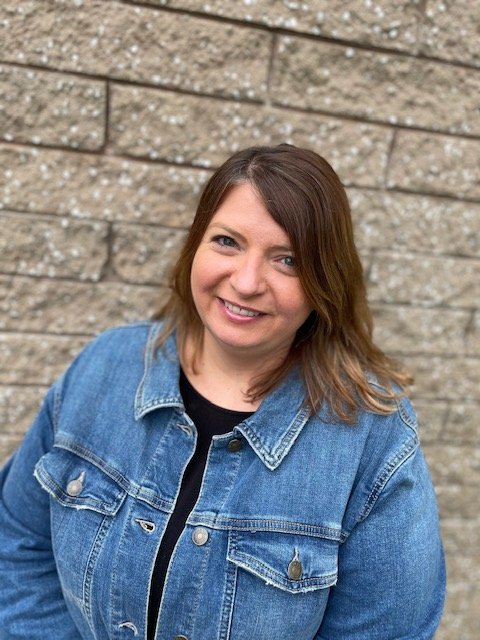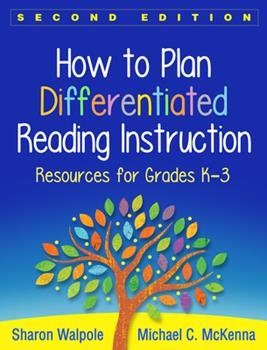
Roadmap to Reading: Implementing Evidence-Based and Data-Driven Literacy Instruction at Marin Horizon School
“I think we’re getting smarter!” declares an enthusiastic kindergartner after impressing himself with his participation during phonemic awareness “word games.” Students notice that breaking words apart into sounds - such as cat into /c/ /a/ /t/ - feels easier than it had in the beginning of the year. From a different spot in the same classroom, other students are excitedly noticing all of the parts of the day’s schedule that have newly-introduced digraphs: “math!” “Spanish!” “lunch!” There are few things more exciting than being five or six and learning that the written stuff all around you is a code that you are learning to break.

How My 1st Graders Learned the Word “Observe”
Fast forward one month, my five students at my small group table opened their new Geodes text, ‘Bee Waggle.’ In this set of four Geodes texts, students learn about Vervet monkeys who communicate different alarm calls to warn about different predators, about ants who communicate using scent, elephants who communicate in many different ways, and bees who have dances to communicate the location of nectar. My students read the page.

The Dos and Don’ts of Literacy Change
Wars have sides. Every time someone talks about the “Reading Wars,” we are making teachers choose a side. Once you choose a side, your side becomes part of your identity, and the other side becomes your enemy. This framing, though exciting and dramatic, makes it hard for teachers to see the good and the humanity in the “other side,” let alone contemplate changing their teaching approach.

Talk To Teachers: Amanda Bryant
I had an amazing mentor, who happened to be trained in phonics. She was Orton-Gillingham trained, and she shared all of her knowledge with me. I still teach the way she taught me to teach. Even when my school adopted balanced literacy, I kept incorporating the things she had taught me into my instruction. New teachers coming into education after me usually only received training in balanced literacy. I feel blessed that I had a good teaching foundation built around phonics before the transition to balanced literacy occurred but felt bad for colleagues who didn’t.

The Middle School Literacy Bottleneck
At the end of the day, it’s about seeing that each child has the skills they need to have choices in life. We can’t perform miracles, but we can make decisions on a macro and a micro level within the system that will benefit the maximum number of students.

How To Celebrate Learning
Celebrating student learning is vital. It shows students that their work is meaningful and something to be proud of. Knowing that their work will be on display motivates them. They love to be experts on topics and teach adults all that they have learned. These celebrations also help to maintain the important connection between the school and the community. Parents are able to see what their students are learning and talk to them about their new knowledge. They also love coming into school and seeing all the great work the students have produced.

What Do Balanced Literacy and Red Meat Have in Common?
We are not wrong to emphasize the urgency of making these changes. But we are wrong when we do not acknowledge how difficult these changes are to make. Change, under any circumstance, even in the face of overwhelming evidence, is really, really, really difficult. Homeostasis rules.

Talk to Teachers: Katie Brunson
I think this shows the trust we had in Kathleen. She made it clear that we were going together, as a school, to improve reading instruction. We’re all going to give it our best shot. We’re going to implement this new curriculum with integrity. Trusting and being trusted by our principal made such a big difference.

How A $30 Book Changed the Way We Teach
PLANNING NOW: No more hunting for materials. All of the materials are right there, down to wordlists and lesson plans (a link is provided for a PDF version which makes for easy copying). Now that we have an explicit scope and sequence with scripted lesson plans, we have more time to understand the materials and make our instruction more intentional. There is no need to plan anything extra. We know the students are getting exactly what they need. Students love the predictability of each lesson and how they build on each other. The skills spiral so students are constantly practicing what they have learned.

Blending, Segmenting, and Decoding In Kindergarten
Going back to my LETRS manual, I decided to try out additive blending. In my classroom, it worked! The students who were having trouble decoding with 3 sounds, were able to decode when they blended the first 2 phonemes together and then added the 3rd sound. Here is an example of me using additive blending in my classroom. The trouble they were having was remembering the first phoneme; therefore, when it came time to blend it all together they made errors. Additive blending took that struggle right out of the equation for them.

A Conversation About Small Groups
Centers! Small Groups! Leveled Reading! Guided Reading! Foundational Skill Groups! Whatever you want to call it, we’re obsessed with differentiation! We’re told that small groups are the way for kids to get exactly what they need. But how do you pull off foundational skill groups without sacrificing time for Tier-1 instruction? And how do you make that independent time valuable for all students (i.e. NOT Chromebook or busywork time)? And should you be using small groups at all? In the following conversation, Katie Scotti and Miranda Eldridge, two Goyen Literacy Fellows, explore these questions and reflect on the differences between their schools.

Talk to Teachers: Moriah Geller
In my undergraduate program, we learned about the reading wars and the history of reading. We didn’t learn about phonics or whole language in depth - beyond what each of those meant - but we did learn about “the pendulum,” so to speak, which swung back and forth about every decade. We also learned a lot about motivation and engagement, which was valuable but not sufficient for understanding how to teach kids how to read. After graduating, I went into a master’s degree and credential program. There, too, the literacy courses were mostly focused on motivation and engagement, along with comprehension strategies, state standards, and the components of balanced literacy.

Knowledge Building is Social Emotional Learning
My students cry every year when the dog in “Love that Dog” gets hit by a car. They empathize with Brian from “Hatchet” who is dealing with the pain of his parents’ divorce while attempting to survive in the wilderness. They feel genuine sadness for Annie, a character in “Woods Runner” who loses both of her parents in the American Revolution, and they learn life lessons from Greek and Native American myths. This is social-emotional learning.

How to Tweet Productively
So what’s the lesson here? Here are three that I can think of:
It’s possible to recover from an unpleasant moment or exchange on Twitter, especially if you assume good intent and keep your commentary dispassionate.
Twitter can be a productive forum for nuanced conversation.
But we shouldn’t expect all or most conversations to end in consensus. This one certainly did not.

Using Data to Support Struggling Readers
It may only be the third full week of the school year, but targeted reading interventions are up and running. How did we get here so quickly? A Decision Tree. Data. Team Work. WIN.

Talk to Teachers: Francesca Corino
As part of our commitment to celebrating, uplifting, and highlighting teachers and their incredible work, we’re introducing a regular series called Talk to Teachers, where we interview teachers about their experience teaching reading and learning about teaching reading. This conversation is with Francesca Corino, an instructional coach or pedagogical coordinator at an international school in Brazil. Francesca learned about structured literacy while searching for alternatives to and extra supports for Units of Study. The following conversation was lightly edited for clarity and concision.

Introducing: Talk to Teachers
For the rest of the year, we will regularly share interviews with exceptional reading teachers from around the world. We want to hear directly from teachers about their experience teaching reading. We want to hear from them about their practice, about their education, about their evolution, about the questions they have for researchers, about any hang-ups they might have about “the science of reading.”

Fellowship Reflections: Talk to Teachers
But selectivity is not the goal here. We want to celebrate, uplift, and honor teachers who are doing exceptional work. We want to learn from these teachers. We want to help other teachers replicate what they’re doing. That’s the purpose of this fellowship.

Goyen Literacy Fellowship: Update 1
Ultimately, I want to select fellows that are exceptional teachers of reading, that are bringing joyful evidence-based practice into their classrooms. I want to choose fellows that will effectively capture these practices in bite-size digestible tidbits and will be exceptional models for other teachers that are trying to learn how to translate research into practice.

Announcing the Goyen Literacy Fellowship
I am thrilled to announce our newest initiative: the Goyen Literacy Fellowship!
What does this mean?
It means that we will give teachers $2000 to document excellent literacy teaching in their classrooms. If you like our SoR Classroom project and want to get paid to help us create a library of content like this, keep reading…
